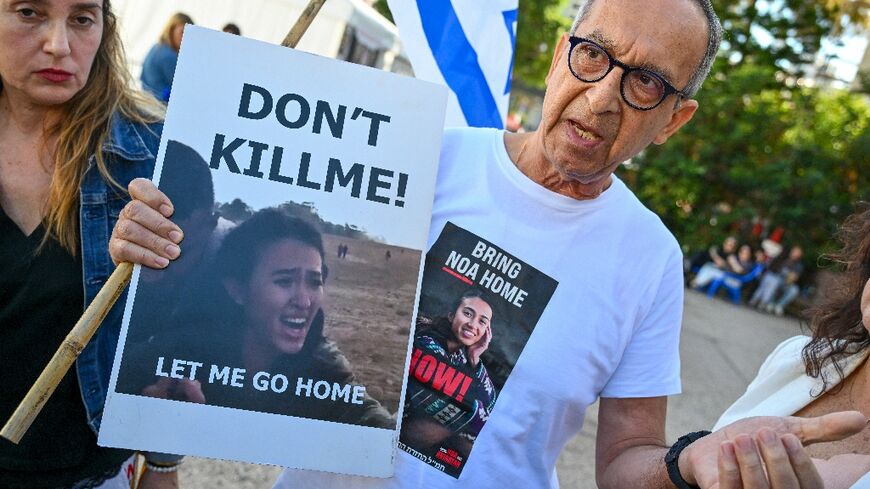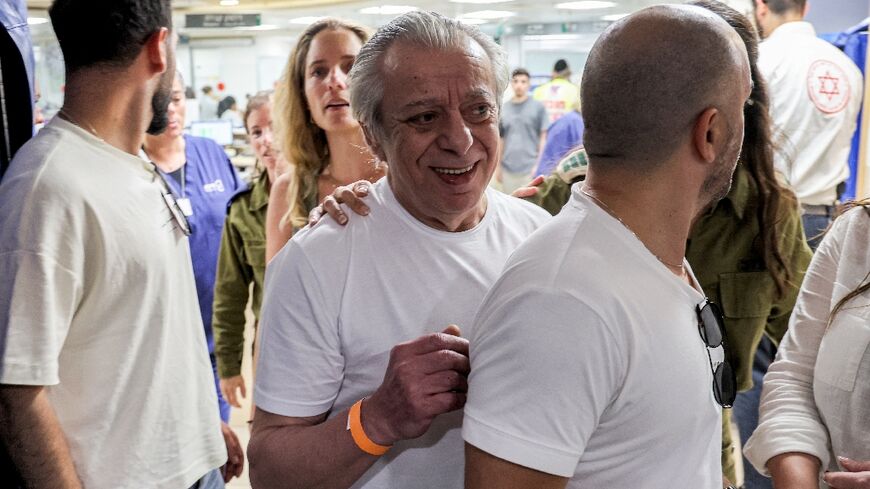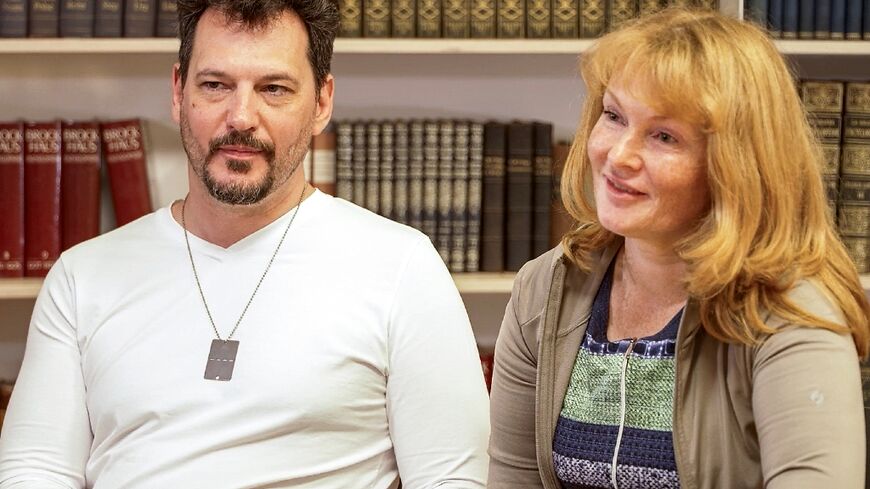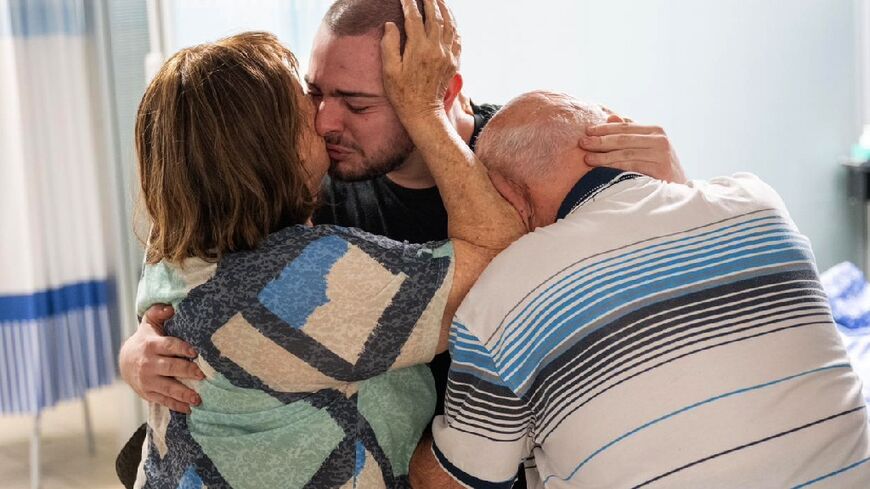Israeli hostage thought 'every night is my last'
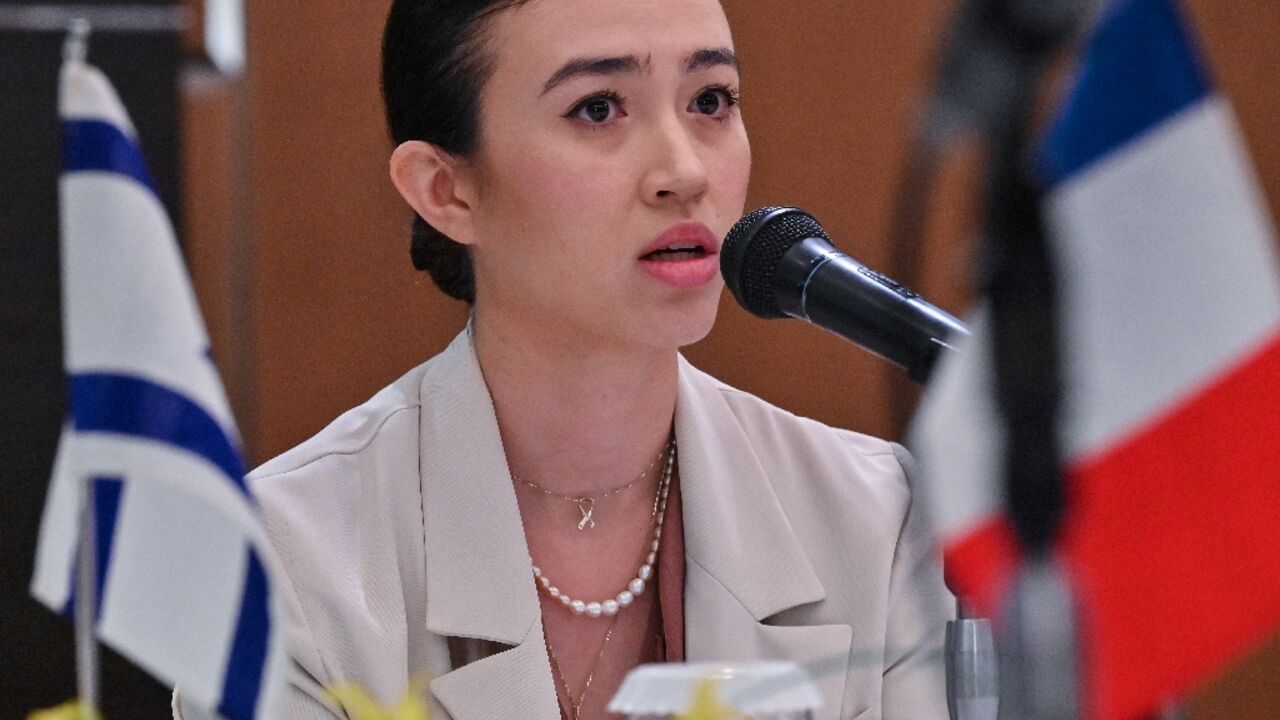
A young Israeli woman who became emblematic of the 251 hostages seized by Hamas on October 7 said Wednesday that she thought every night in captivity would be her last, calling her survival a "miracle".
"Every night I was falling asleep and thinking, this may be the last night of my life," Noa Argamani, freed in a raid on Gaza by Israeli special forces in June, said in Japan on a visit with her father.
"And until the moment I was (rescued)... I just did not believe that I'm still surviving," Argamani, 26, said as she met with senior diplomats from Israel and G7 countries.
"And in this moment that I'm still sitting with you, it's a miracle that I'm here," she said.
"It's a miracle because I survived October 7, and I survived this bombing, and I survived also the rescue."
Argamani was among those kidnapped by Hamas from the Nova music festival during the Islamists' attacks that sparked war with Israel.
A video that went viral -- which Argamani says she had no idea about until she was freed -- showed her on the back of a motorbike screaming: "Don't kill me!"
The clip showed her boyfriend, Avinatan Or, an engineer, being led away separately.
Israeli special forces freed Argamani in a raid on Gaza's Nuseirat refugee camp on June 8 along with three others -- Almog Meir Jan, 22, Andrey Kozlov, 27, and Shlomi Ziv, 41.
The Israeli military said Tuesday that it had retrieved the bodies of six hostages from tunnels in southern Gaza.
Out of 251 people taken hostage that day, 105 are still being held inside the Gaza Strip, including 34 the military says are dead.
"Avinatan, my boyfriend, is still there, and we need to bring them back before it's going to be too late. We don't want to lose more people than we already lost," Argamani said.
- Scuba diving -
After her release, Argamani went to the hospital in Tel Aviv where her mother Liora was undergoing treatment for brain cancer. She has since died.
The software engineering student said that during her eight months in captivity she was moved countless times to different locations, including to tunnels.
She said that food and water were often scarce and that she was only able to shower around twice a month. Without air conditioning it was "really hot".
"I lost a lot of weight... We drank something like less than a half litre for a day, and there were days that we (were not allowed) to drink at all," she told reporters in Tokyo.
Argamani said she coped through "mindfulness" and remembering happier times.
"(Things like) scuba diving, everything that I liked to do in my free time before, it really helped me to get to just release, to know that you if today I'm okay, I don't need to worry about the future," she said.
"But it's really hard to remember this all the time. Because there are nights, there are days that you all the time hear the bombing and you think it's going to be your last day," she said.
- Criticism -
The October 7 attack resulted in the deaths of 1,199 people in Israel, mostly civilians, according to an AFP tally based on official Israeli figures.
Israel's retaliatory military campaign has killed 40,173 Palestinians in Gaza, according to the Hamas-run territory's health ministry, which does not give details of civilian and militant deaths.
Most of the dead are women and children, according to the UN human rights office.
Last month, Argamani travelled to the United States and attended a speech to US lawmakers by Israeli Prime Minister Benjamin Netanyahu.
In a febrile political atmosphere back in Israel, this drew criticism from families of some other hostages who accuse Netanyahu of foot-dragging on a truce deal that would free their loved ones.
Argamani, who said she wants to work to raise awareness of the fate of the hostages, also had a message for her boyfriend.
"I think that he doesn't know that I have been released yet," she said.
"I just want to say that he should take care of himself, and I am waiting for him at home and doing as much as I can to bring him home to his family.
"And to me also."
burs-stu/tym


